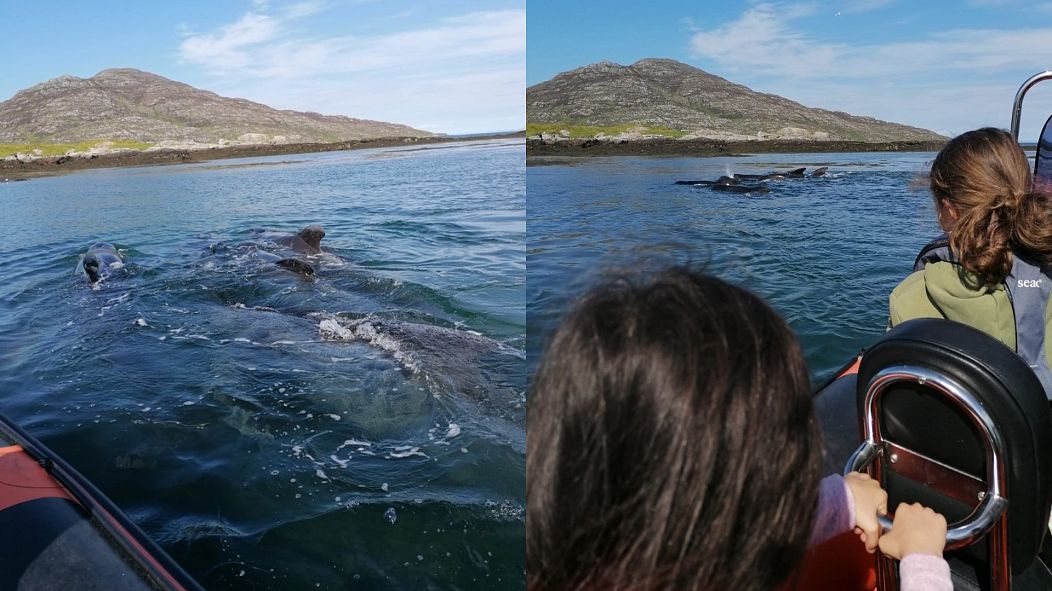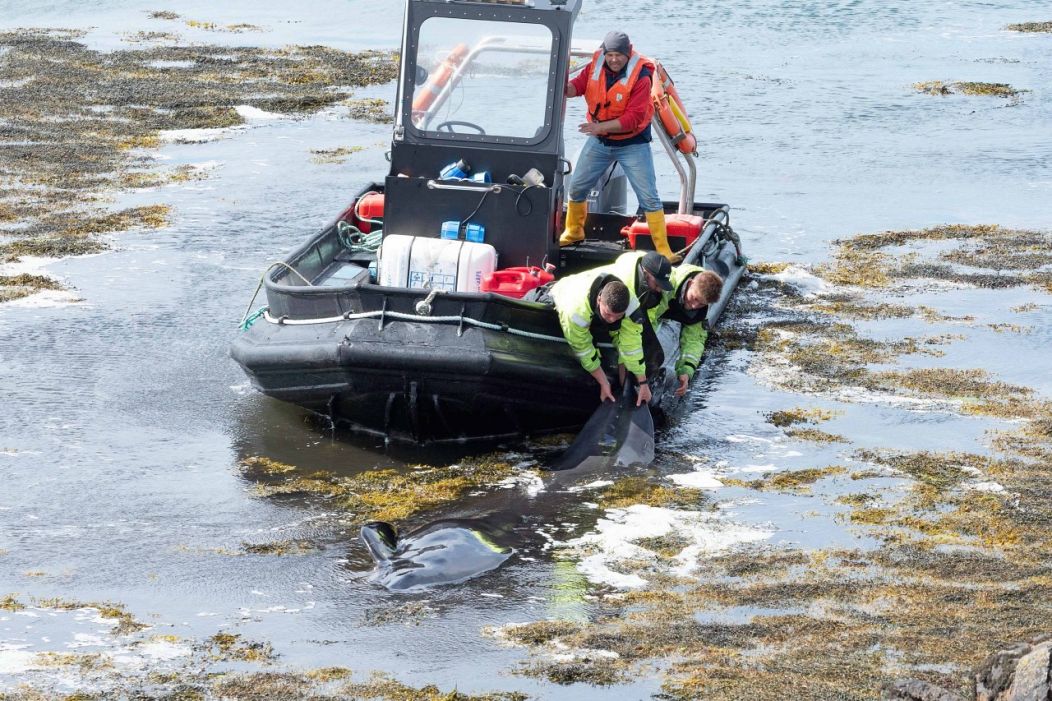Local residents rallied together to rescue the stranded whales.
Local residents on the Scottish island of Uist have successfully saved ten stranded whales who were tangled in seaweed.
 ADVERTISEMENT
ADVERTISEMENT
 ADVERTISEMENT
ADVERTISEMENT
The long-finned pilot whales were part of a 20-strong pod and were spotted struggling to survive on the shore last Thursday. A rescue mission quickly sprang into action off the coast of the Outer Hebrides, with a number of people rallying together to help. Charity British Divers Marine Life Rescue (BDMLR) led the mission and boats were offered up by sight-seeing company Uist Sea Tours. The local Skydancer cafe even chipped in to provide rescuers with refreshments.
The operation lasted for three days as the animals were stuck in a particularly narrow, rocky cove. Volunteers had to push the whales off the rocks to get them back into open water, in a process known as refloating.
David Steele, head of Uist Sea Tours, told Euronews Living how it happened.
“I got a call on Thursday night saying that there was a pod of some sort in the bay of Lochboisdale so I went out to investigate.”
The next morning, David and his sister Kathleen were sad to find that the pilot whales were now washed up on the shore. “I jumped in the boat and we managed to get ten back in the water and swimming,” he recalls.
In the end, ten whales were saved and have since been seen swimming in open water between the islands of South Uist and Skye. Unfortunately seven did not survive, despite the team’s best efforts - it was unclear was happened to the remaining three.
For David and the rescue team, the result is extremely positive, as there is normally only a 5 per cent survival rate for stranded whales, he explains.
“The fact that we saved 10 out of 17 is amazing. The community really pulled together to make it possible - especially in such strange times.”
The importance of whale conservation
Long-finned pilot whales can grow to 6.5m in length and feed on mainly squid and fish. They are highly social animals that have been recorded in both smaller pods to groups of up to 1000 individuals, according to the Hebridean Whale and Dolphin Trust. The species face threats from entanglement in fishing gear, pollution and hunting and are the most commonly stranded animals in the Hebrides.
“Sadly, whale and dolphin strandings around the UK coastline are a common occurrence. In fact, there are probably more strandings than we know about because so many go unreported - they can happen in very remote spots,” says Danny Groves from UK charity Whale and Dolphin Conservation.
“Whales and dolphins strand for many reasons and it is sometimes not possible to help them once they do come ashore. After just a few hours out of water, a whale’s body can start to shut down.”
Often whales and dolphins strand due to the effects of human activity, such as entanglement, being struck by vessels, or loud noise disruption from underwater surveys or drilling for oil or gas.
These majestic marine animals “live in a world of sound”, says Danny, which they use to navigate, locate prey and communicate. “Interfering with this world by introducing loud noise can have dramatic effects. Have you ever tried talking to a friend in a noisy nightclub or at a concert? It’s not easy!”
More importantly, whales protect us by helping to provide up to 50 per cent of our oxygen, thus combatting the climate emergency. He adds, “When they die their bodies sink to the seabed, taking huge amounts of carbon with them.”
Restoring the ocean environment and allowing whale populations to recover to levels that existed before they were devastated by industrial scale whaling and fishing is vital to preserving the global ecosystem, Danny concludes.












